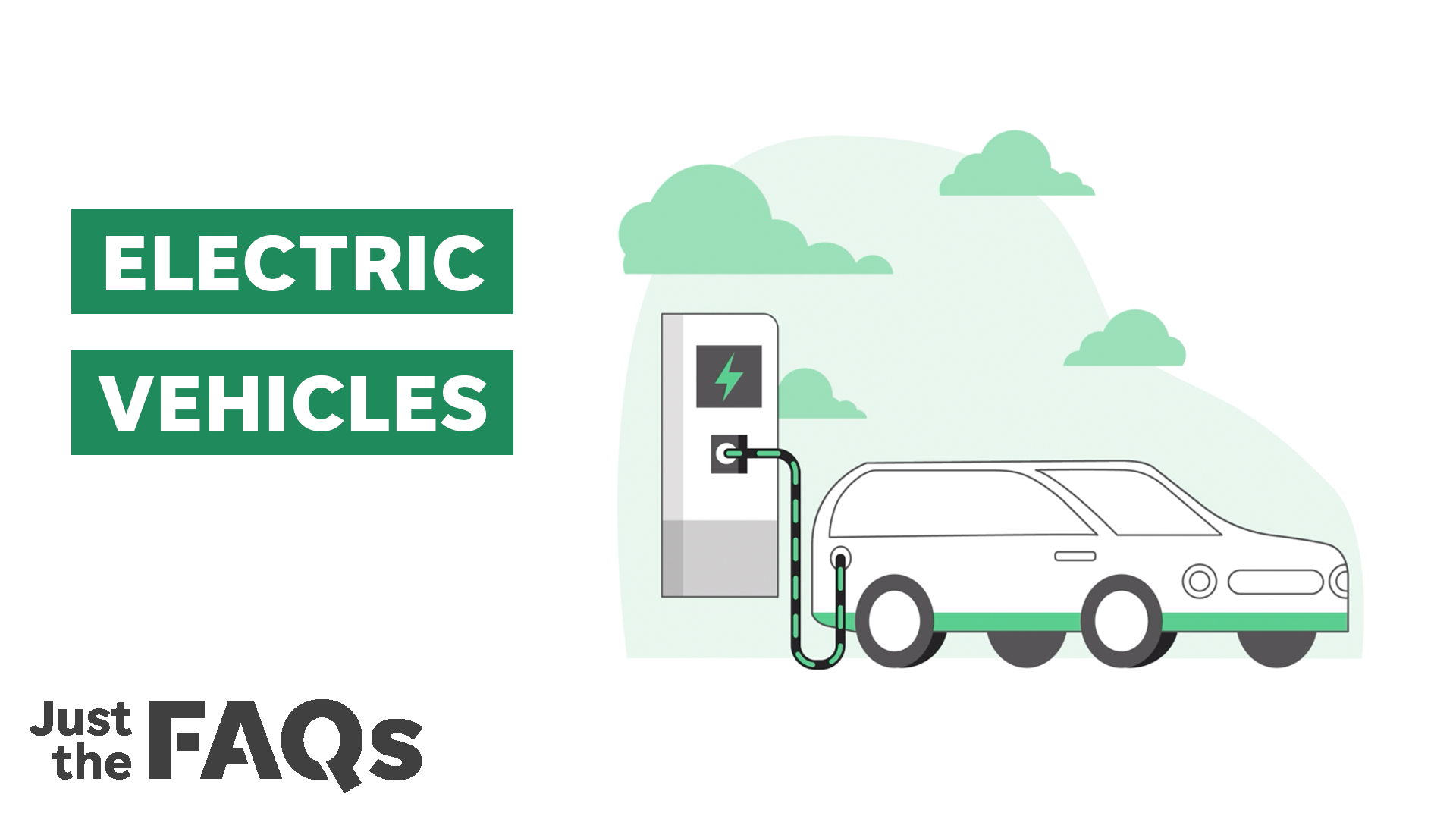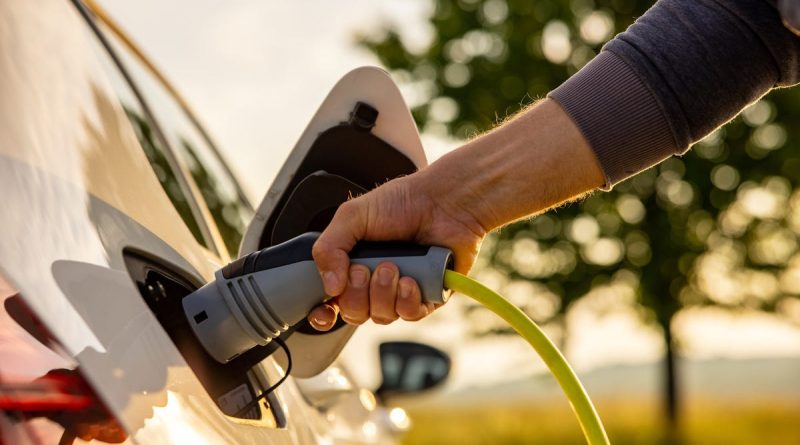How do electric car tax credits work? When to buy.
[ad_1]

Climate change and EVs: How will future cars stem global warming?
Electric vehicles have become a hot trend. But how much better are they for the environment than standard gas or diesel-powered cars?
Just the FAQs, USA TODAY
Electric vehicles are going mainstream in a major way. Last year they made up an impressive 7.1% of all new cars purchased. Look for those numbers to take another leap forward in the future as $7,500 tax breaks kick in for some electric cars and trucks.
It’s part of the Inflation Reduction Act, a landmark piece of legislation passed in August of 2022 that offers financial incentives for Americans to buy electric when it comes to cars and appliances as the nation moves away from fossil fuels. There are also incentives for upgrading appliances and greening your home.
LEARN MORE: Going green used to be a luxury. Now it can save you thousands. Here’s how.
This could go a long way toward helping the United States shift to carbon-free energy. Transportation was the largest source of US greenhouse gas emissions in 2022, according to the Sustainable Energy in America 2023 Factbook.
While the Act itself was passed eight months ago, many of the details are still being worked out, so figuring out if you or the car you want qualifies isn’t easy and much remains up in the air. You’ll need to carefully check your personal eligibility and the eligibility of the car — and the latter can rapidly change.
The tax credit could get more difficult to access soon, when battery sourcing requirements come into play, possibly restricting what cars qualify. But things should get easier in 2024 when you can transfer the tax credit to your dealer so you get an upfront discount.
Here’s what to know, for now, about tax credits for electric vehicles:
Bottom line: When should you buy an EV?
- Almost ready to buy? Do it soon — like now. The number of vehicles that qualify may shrink in 2023, for complex reasons you’ll learn about below. If you’re close to buying, move fast for the most options and best chance at savings.
- Still doing research? Take your time — 2024 might be a better time to buy. Rules will be finalized in coming months and dealers could be able to give you discounts up front next year. Overall, getting these discounts should be a smoother experience if you are able to wait.
Who qualifies for EV tax credits? What vehicles qualify?
The law gives qualifying vehicle buyers as much as $7,500 tax credit for the purchase of a new electric vehicle (EV) or plug-in hybrid and up to $4,000 for a used one. However, there are income limits and price caps.
Income eligibility limits:
- Households filing jointly making $300,000 or less.
- Heads of household making $225,000 or less.
- Single taxpayers making $150,000 or less
Vehicle requirements:
WHAT IS GREEN ENERGY?: What to know about renewable, clean power like solar and wind energy
CLEAN ENERGY RECORD: More than 40% of US electricity now comes from carbon-free sources
What’s the catch?
The money is only available as non-refundable tax credits. That means you can’t get more money back in the tax rebate than you actually owe in taxes.
Say you buy a Chevy Bolt for $27,000. If your household pays the federal government at least $7,500 in taxes and you otherwise meet the requirements for the credit, your tax bill will be reduced by that much.
If you only owe $3,000 in taxes, you can only get a $3,000 credit, even if you were eligible for the full $7,500, said Mark Luscombe, principal analyst with Wolters Kluwer Tax & Accounting.
On average, in 2020 Americans whose adjusted gross income was between $50,000 and $75,000 paid $4,567 in taxes, according to the IRS. Those who made between $75,000 and $100,000 paid $7,363.
This means middle- and higher-income families are most likely to take advantage of the tax credits because of how the law was written, said Sage Briscoe, federal senior policy manager for implementation with Rewiring America, an electrification non-profit.
“Nonrefundable tax credits favor those with bigger tax bills, and those tend to be people with higher incomes,” she said.
A new battery rule may change things
The IRA contains language requiring the critical minerals and battery components used in an EV be sourced or recycled in North America, but it wasn’t fully spelled out. The requirements also grow stricter over time because Congress wanted to encourage automakers to shift EV battery production to the United States.
How does climate change affect you?: Subscribe to the weekly Climate Point newsletter
READ MORE: Latest climate change news from USA TODAY
Sometime soon – perhaps by the end of March – the IRS will issue new regulations detailing how this will work. These are some of the most complex parts of the IRA’s clean vehicle credit.
Once the regulations go into effect, “a lot of vehicles currently eligible for the full $7,500 credit will likely only be eligible for half the credit,” said Chris Harto, Consumer Report’s senior energy policy analyst.
To avoid this, you’d need to buy – and take delivery of – an EV before the rules come out.
“If they say you’ll get it in May, then maybe you’re stuck,” Briscoe said.
EV tax credits will change again in 2024
Starting in 2024, buyers can also transfer an EV’s tax credit to the dealer, so they get the $7,500 as an upfront discount.
How this will play out exactly isn’t yet known.
“It’s unclear how the dealer will know you’re eligible for the full credit,” said Luscombe. “Maybe that’s why it’s delayed for a year so the IRS can figure it out.”
It’s also possible some EV manufacturers whose vehicles don’t qualify, because they’re too expensive, may offer to match the tax credit, so definitely check their websites.
Get up to $1,000 off installing an EV charger
Once you’ve got an EV, you might want an EV charger at home. The IRA renews a tax credit that covers 30% percent of the installation cost, up to $1,000.
As written, the law includes geographic restrictions on where the credit can be used to encourage the installation of public chargers in low-income and rural areas.
Check the Rewiring America website to see if you qualify.
Use these calculators to see if you qualify
The Inflation Reduction Act tax credits around EVs are so complex that consumers should be cautious, said Keith Barry, autos writer with Consumer Reports.
“You should always double-check your dealer’s math,” he said. “It doesn’t mean they’re doing something malicious – buying a car is a very complex process. Car salespeople are not accountants.”
Consumer Reports, long a go-to for car buyers, has a tool for understanding EV incentives and tax credits.
Rewiring America also offers a thorough web calculator for all IRA tax credits and rebates.
